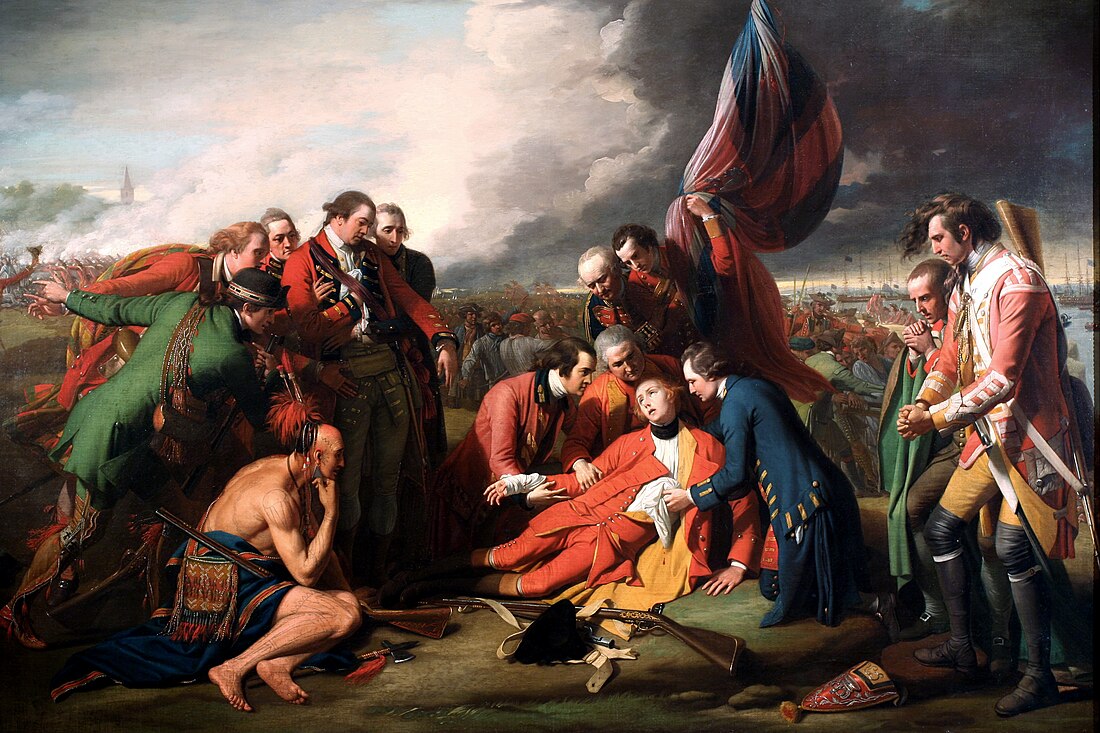Top Qs
Timeline
Chat
Perspective
1745 in Canada
From Wikipedia, the free encyclopedia
Remove ads
Events from the year 1745 in Canada.
This article needs additional citations for verification. (October 2021) |
Incumbents
Governors
Events
- 16 June 1745 - After a six-week siege, the French fort of Louisbourg on Cape Breton Island falls to the British colonial forces from New England organized by Governor William Shirley. This intensifies hostilities in what is known as King George's War, an extension of the European War of the Austrian Succession. The English go on to make new conquests from the French in the West Indies.
Births
- Samuel Hearne, explorer, fur-trader, author, and naturalist (died 1792)
Deaths
This section is empty. You can help by adding to it. (December 2010) |
Historical documents
Summarize
Perspective
Pamphlet (written in January 1745) argues that Île-Royale must be captured to protect valuable fishery in Newfoundland[3]
Rising British Army officer says few provisions, little gunpowder, poor discipline and leadership, and exposed defences make Louisbourg vulnerable[4]
Massachusetts government moves (relatively) quickly to mount military expedition to take Louisbourg and Île-Royale[5]
Siege of Louisbourg ends with French defenders and British invaders agreeing to capitulation and transfer of French to France at British expense[6]
Governor William Shirley sends report and journal of Louisbourg siege, including details of soldiers' extremely heavy labour[7]
"God fought for us" - Sermon crediting Providence for so many advantages of preparation, execution and luck leading to fall of Louisbourg[8]
Photo: Monument erected by Society of Colonial Wars to the memory of New England soldiers killed at Louisbourg during siege of 1745[9]
During siege, whaleboats were loaded with ladders and 500 soldiers and marines to take Louisbourg's Island Battery, but fog prevented attempt[10]
"After a Dance this Day, they fell upon him" - Report of torture killing of British soldier captured near Louisbourg[11]
"The Inhabitants were strangely surpris'd" - fire ship loaded with gunpowder used to damage King's Gate and other structures in Louisbourg[12]
"A great deal of ill usage" - Reports of local Indigenous people being abused by British authorities after siege (Note: "savages" used)[13]
Loss of Louisbourg eliminates France's benefit from rich North American fishery trade to Catholic Europe (Note: "savages" used)[14]
Nova Scotia Council president Mascarene assures Acadians that none who are of mixed European and Indigenous origin will be scalped[15]
Acadians supplying provisions to occupied Louisbourg threatened by its local Indigenous people, but those in Nova Scotia want peace[16]
Council advised from Chignecto that Jean-Louis Le Loutre has arrived there from Quebec "with presents for the Indians"[17]
Mascarene sternly cautions Acadians for seeking Le Loutre's permission to supply Annapolis, and then letting "11 or 12 Indians" stop them[18]
Uncooperative and hostile actions of Acadians (listed from 1710) make them, if not "utter Enemies," then "unprofitable Inhabitants"[19]
Quebec leaders report almost all Acadians desire "French Dominion" while amassing money as "a resource for an evil day"[20]
Joseph Robson investigates lower Nelson River for its usefulness to Hudson's Bay Company[21]
Joseph Robson's argument for building Hudson's Bay Company forts of stone, not wood[22]
Map of New France covers from Grand Banks to Pays d'en Haut to Baffin Bay[23]
English translation of Alain-René Lesage's fictionalized version of Canadian soldier/adventurer Beauchêne's exploits is published in London[24]
Remove ads
References
Wikiwand - on
Seamless Wikipedia browsing. On steroids.
Remove ads


